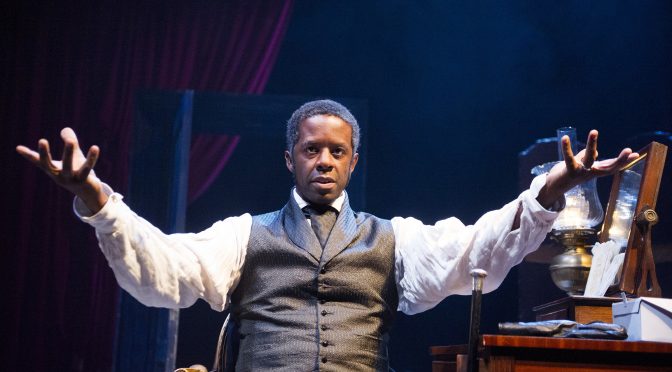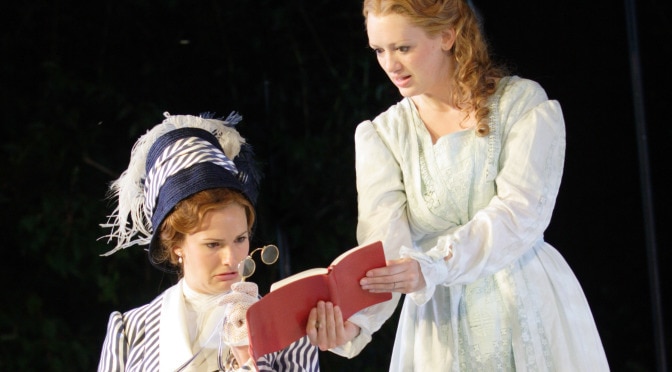Lolita Chakrabarti’s new play at the Tricycle Theatre, Red Velvet, tells the story of the African American actor Ira Aldridge. You might not have heard of him, but his fame in the 19th century led to tours all over Europe, and his presence on the London stage was part of a watershed in theatre history. Aldridge’s career is a potent tale of racism and personal struggle, destined to make great drama: Chakrabarti’s play is fortunate to receive a fine production, superbly performed, which makes the most of it.
The play itself isn’t quite as challenging as might be hoped – at times, Chakrabarti seems intimidated by her subject – but it is well written and entertaining. The secondary characters (other actors and a young journalist hoping for a scoop) aren’t fleshed out enough, but the acting is superb. There are some gem-like performances, especially from Ryan Kiggell, who gets some big laughs, and the hard working Rachel Finnegan, who takes on the challenge of no fewer than three roles.
Just as Aldridge’s arrival on the London stage raises the game amongst the actors he works with, the cast seem inspired by the excellent Adrian Lester who takes on the lead role. Lester makes it easy to believe Aldridge was a sensation. His performance is commanding, his voice intoxicating and he is an actor of great intelligence who keeps you totally engaged. The transformations as he adopts a role, or changes age, are truly remarkable.
Red Velvet is the first play from the Tricycle’s new artistic director, Indhu Rubasingham – it’s a great start. Her direction is clear and particularly impressive when approaching scenes that feature a 19th century style of acting. It’s an appropriate touch to have the cast remain on stage throughout, drawn into the action just like the audience, and the play’s moving, shocking finale is handled with masterful subtlety.
Until 24 November 2012
www.tricycle.co.uk
Photo by Tristram Kenton
Written 19 October 2012 for The London Magazine


